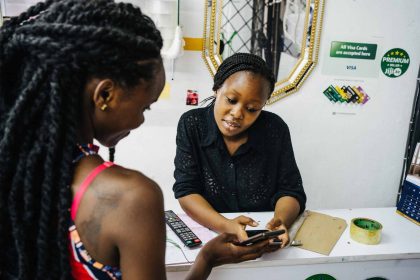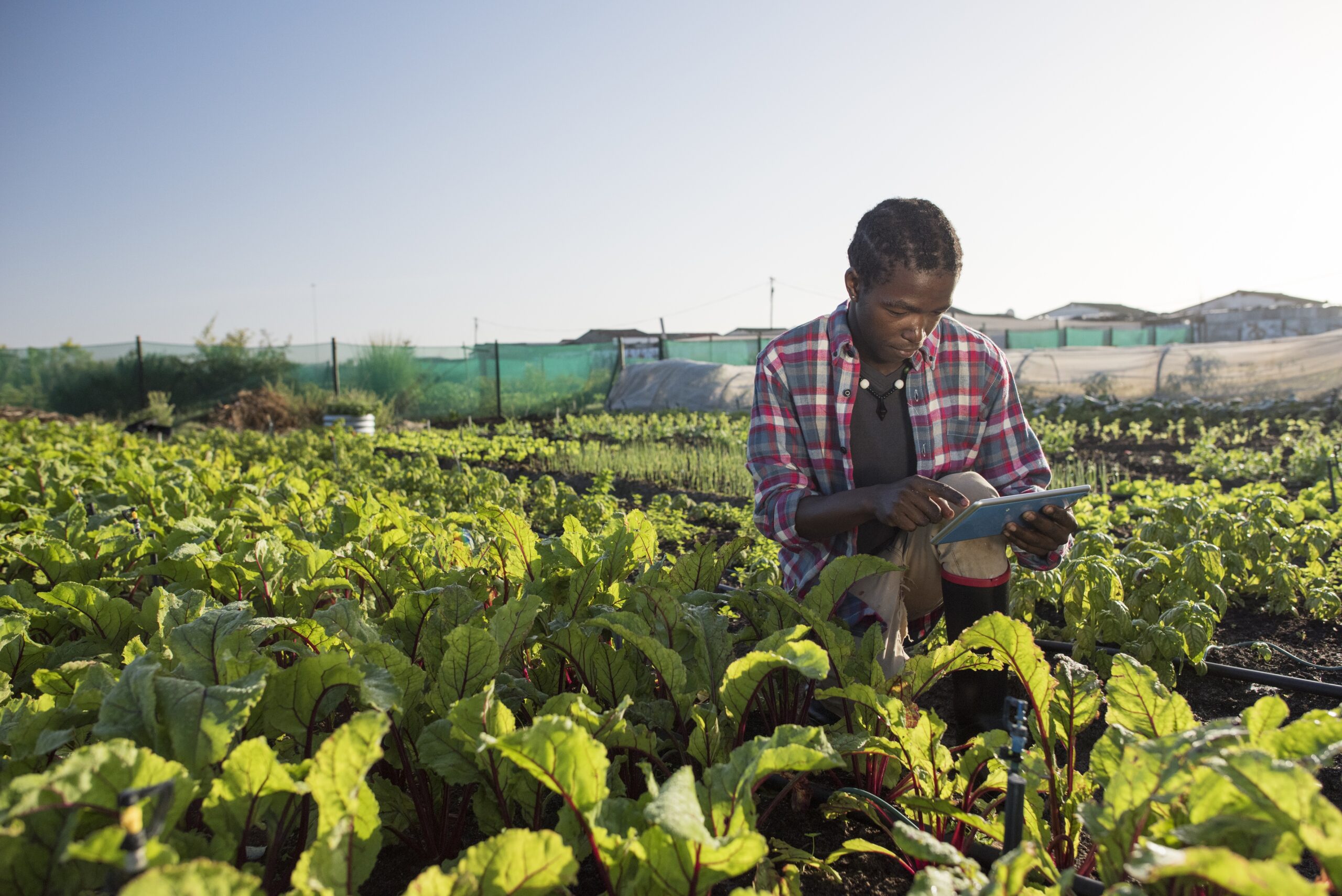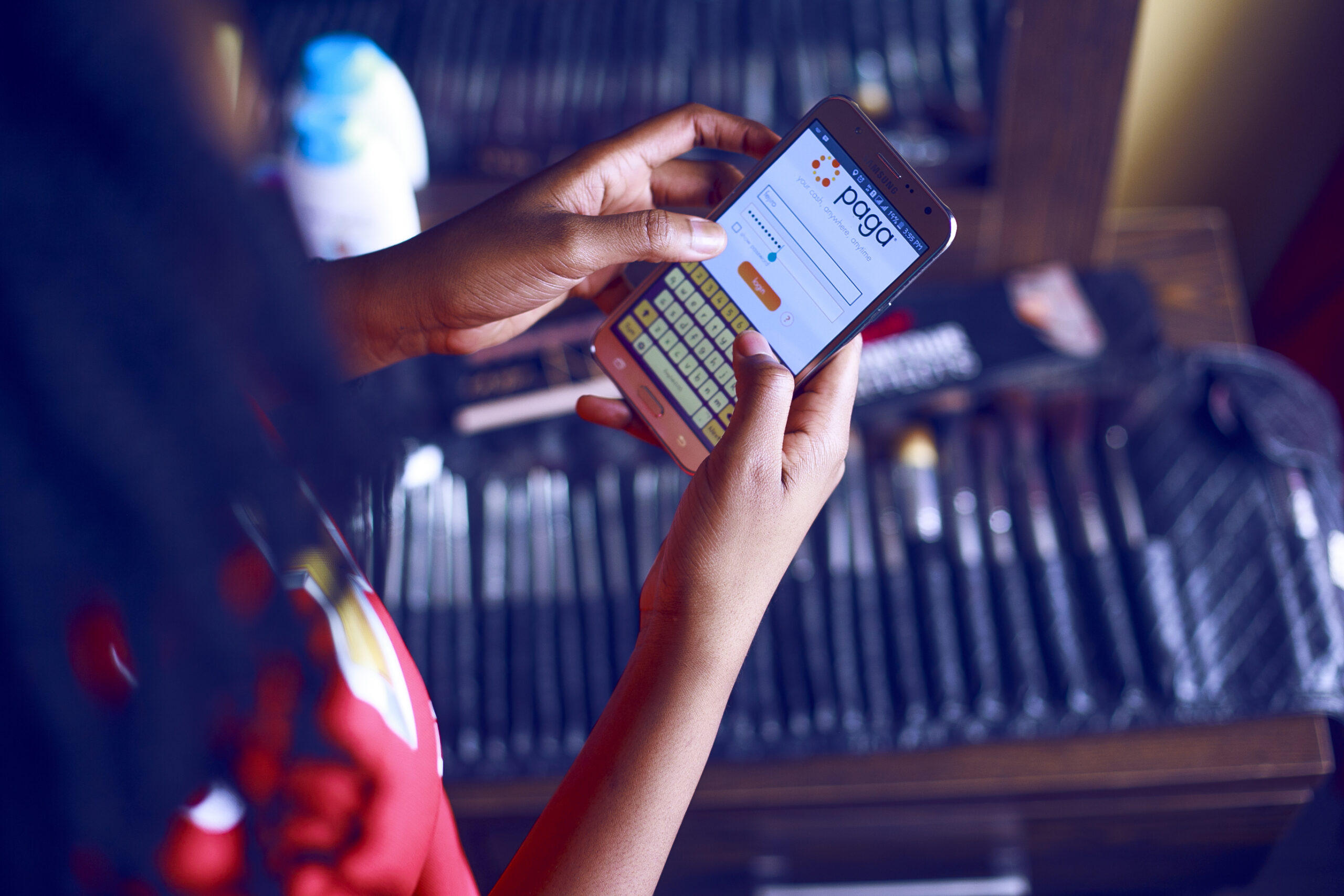
Charting the trends that will shape African investment in 2024
In recent years, Africa has been attracting significant investments across various sectors, driving economic growth and development. Although 2023 was a fairly challenging year for investments, the continent continues to hold great potential for investors who want to propel Africa towards a brighter future while also generating competitive returns.
Much of this potential will be driven by the exact same trends that are changing how we at Goodwell Investments do business in the west. Some of these trends will even have a greater impact in the African context. In our first blog post, we summarize the developments that caught our attention in 2023, and will certainly impact the African investment space in 2024 and beyond.
AI’s emergence in Africa
One topic that captured all the headlines in 2023 is the rise of Artificial Intelligence (AI). AI is beginning to take hold in Africa as well, and could offer huge new opportunities for rapid advances in a variety of industries. While Goodwell has no plans to invest directly in AI, it will certainly have an indirect impact on the technology-driven companies in our portfolio, enabling them to optimize their processes, increase production and reach new audiences.
In the agricultural sector, for example, AI can improve crop yields by optimizing irrigation. But it can also improve access to healthcare, enabling faster prediction and identification of certain disease outbreaks, as well as better management of patient data. AI also shows great potential for powering financial inclusion, such as introducing innovative ways to access credit risk, bringing customized financial products to underserved audiences, and providing targeted financial education and advice.
Although AI will create new opportunities in Africa, there are also challenges. As with other new developments, one of the primary challenges is inclusive access: it’s already clear that access to the technology and skilled AI professionals to build out the systems will vary widely by region. The impact of AI tools in Africa will therefore depend heavily on public and private sector investment and infrastructure developments.

The expansion of 4G and 5G
More and more Africans have access to high-speed connectivity such as 4G, and according to a report from GSMA, this number is only going to double in the coming years. In addition, 5G is also on the rise, though at a different scale, slower pace, and only in specific geographies.
But regardless of whether African consumers are using 4G or 5G, increased access to fast, reliable connections and more affordable mobile devices are transforming how people do business and conduct their daily activities. These networks have already enabled African businesses to roll out new services at record speed, and we’re expecting to see even more ground-breaking innovations in the coming years.
As with AI, Goodwell isn’t interested in 4G and 5G in and of itself; we’re interested in how it can be used to drive greater inclusion. Many of the companies we already invest in provide clear evidence of the life-changing benefits of strong network connections. For instance, Baobab helps small business owners manage all their financial needs without ever setting foot in an office. Inclusivity Solutions bundles insurance products with other services people already purchase through their phones. And with Copia, residents of rural villages can have essentials like diapers and fertilizer delivered to nearby agents, eliminating costly and time-consuming shopping trips to the city.

Powering positive change
One of the most encouraging developments we’ve seen in the past year is Africa’s increased focus on renewable energy. In particular, countries such as Nigeria, Ghana, Ethiopia and South Africa are actively engaged in the transition to greener energy. Despite the fact that Africa has a large coastline, wind energy is underutilized. South Africa had the largest solar energy capacity in Africa as of 2022, reaching over six gigawatts. In contrast, Kenya then has the largest wind power farm: The Lake Turkuna Wind Power Project. The wind farm covers 160 square kilometers and has a capacity of 310 MW, enough to supply one million homes.
Goodwell is eager to support this energy transition, especially in regions where people don’t have reliable access to the national grid. Our first investment in this sector is SparkMeter, a provider of grid management services, equipment and software solutions. They help increase access to reliable electricity in underserved communities by working with different types of energy providers, such as solar installers in Nigeria.
Additionally, several African countries are also slowly exploring the possibilities of electric vehicles, especially in densely populated urban areas. Instead of waiting for governments to act, many of the efforts are being led by innovative businesses. MAX, one of our investees in Nigeria, is leading the way in introducing electric motor bikes, for example. Other shipping and logistics firms we work with are starting to research LNG-powered vehicles.
The use of EVs can provide opportunities for sustainable economic growth, reducing air pollution and promoting technological innovation in the transportation sector. However, EVs are just one part of the equation. Transitioning to greener mobility will also require ambitious infrastructure improvements, such as a robust network of charging stations. While this will certainly be a major challenge, it also presents huge opportunities for investors and local entrepreneurs who are early movers in this space.
Taking control of waste
19 of the world’s 50 biggest dumpsites are located in sub-Saharan Africa. On top of that, for decades, several western countries have treated the continent as a dumping ground for their waste. Recent statistics reveal that up to 90% of Europe’s used clothing and textile waste are shipped to Africa and Asia. Literal tons of e-waste end up in open dumpsites in countries like Ghana, Nigeria and Tanzania every year, and when China stopped accepting plastic waste from the US, it started appearing in places like Kenya and Senegal.
Happily, there’s a growing awareness of the problem, and many African countries, such as Kenya, are poised to take influential roles in finding solutions to their own waste issues while also limiting the influx of foreign trash. Moreover, governments and NGOs are launching programs and policies aimed at reducing waste. In Nairobi, for example, they insist on placing waste pickers, who collect 60% of all plastic that gets recycled globally, are at the centre of a UN treaty to fight plastic pollution. This treaty aims to encourage recycling, introduce waste management laws and promote circular economy models.
Waste management innovations perfectly align with Goodwell’s mandate to invest in basic goods and services that improve people’s lives. While we haven’t made any investments in this sector yet, in the years ahead Goodwell will increase our focus on waste management. We’re currently developing an investment thesis for this sector for uMunthu II (our most recent fund) and are already actively pursuing waste management investments through Pepea, the fund we manage on behalf of Oxfam Novib.

Unlocking cross-border business
The African Continental Free Trade Area (AfCFTA) is a major initiative aimed at promoting economic integration within Africa by reducing trade barriers and boosting regional trade. Although the trade agreement was officially signed in 2018, it has only been officially implemented since 2023.
The AfCFTA makes it easier for different African countries to do business with each other and with the rest of the world. It is one of the largest free trade areas in the world, including almost all 55 African Union countries, with a market of more than a billion people and a combined gross domestic product of more than $3 trillion.
The implementation process is phased, with countries negotiating tariff reductions and agreeing on trade rules over a period of several years. The AfCFTA offers the potential to breathe new life into the African economy as a whole, with the IMF claiming it could boost intra-African trade by 52.3% by 2025, increase Africa’s income by up to $450 billion by 2035, and lift 30 million Africans out of extreme poverty. If properly implemented, Africa’s women and youth could be some of the biggest beneficiaries.
By working closely with our portfolio companies, Goodwell has seen many of the struggles of inter-African trade firsthand. While progress is still incremental at this point, we will be keeping a close eye on two areas where the AfCFTA could make a huge impact on the businesses we invest in: infrastructure and digital trade. Investment in essential infrastructure like all-season roads would be transformative, leading directly to more efficient and affordable transport and logistics, and significantly reducing post-harvest losses in the agricultural sector, for example. Easing cross-border digital trade will be just as impactful, giving Africa’s residents to access to e-commerce, mobile money, online education and other digital tools that enable greater economic inclusion, no matter where they live.
Translating new developments into inclusive growth
With a diverse and growing population and such dynamic forces at play, Africa is one of the most exciting geographies for investors who want to pair promising financial returns with social and environmental impact. Some of biggest developments we’ve seen on the continent in 2023 will offer even more potential for inclusive economic growth.
AI’s rise in agriculture and healthcare promises transformative impacts, albeit with challenges in access and expertise. High-speed connectivity expansion, including 4G and 5G, holds the key to inclusive innovation and service accessibility. Renewable energy and waste management are emerging as critical areas of focus, driving sustainable growth and environmental consciousness. Moreover, the African Continental Free Trade Area is fostering economic integration and reducing trade barriers.
These trends reveal Africa’s resilience and potential for transformative change. We’re committed to making impactful investments that propel the continent towards a more prosperous and sustainable future. If you want to learn more about how Goodwell is creating an inclusive world with no one left behind, please get in touch: contact@goodwell.nl. We’re always excited to talk to like-minded investors and forward-thinking entrepreneurs.
References
Burke, Jason. “A Goldmine at Our Fingertips’: The Promise and Perils of AI in Africa.” The Guardian, 30 Oct. 2023.
European Investment Bank. “Finance in Africa: Uncertain Times, Resilient Banks”, 2023.
GSMA. “Mobile Money sub-Saharan Africa Report”, 17 Oct. 2023.
LTWP. “LTWP 2022 sustainability Report.” Lake Turkana Wind Power.
McVeigh, Karen.“Plastic Waste ‘spiralling out of Control’ across Africa, Analysis Shows.” The Guardian, 8 Nov. 2023.
Taneja, Jay, et al. “The Drivers of Africa’s Electric Vehicle Future Might Be Different than You Think.” Energy for Growth Hub, 24 Oct. 2022.
United Nations Environment Programme (UNEP). “Africa Waste Management Outlook Summary”.
World Bank. “To Avert a ‘Lost Decade,’ Africa Must Urgently Achieve Stability, Increase Growth, and Create Jobs.” World Bank Group, 4 Oct. 2023.